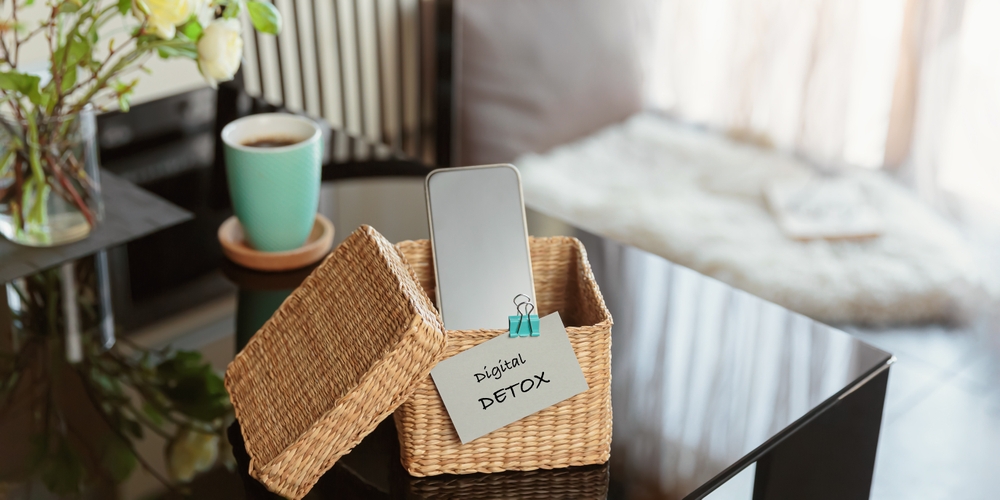Reducing Screen Time Using CBT Therapy ‘Digital Detox' Strategies

The average person in the UK checks their phone every 12 minutes. Have you ever found yourself ‘doom scrolling’ after working in front of a screen all day? You’re not alone in wanting to reduce screen time.
We are spending more time than ever in the digital world. A study found that the average daily social media usage of internet users worldwide was 143 minutes without engaging with other digital media, such as for work.
It may come as no surprise that there has been a growing trend in finding new ways to ‘detox’ from devices. One such example of this is the rise in purchases for feature phones – a basic phone without browsing, social media or notifications.
What is all this screen time doing to our mental health?
The amount of time we spend online is one of many reasons many people are looking for alternative ways to reduce screen time. What we see can also affect our well-being. Research suggests a correlation between excessive screen time and higher levels of anxiety and depression, particularly in adolescents and young adults.
The constant connectivity can lead to feelings of being overwhelmed by continuous information and communication demands.
Heavy digital engagement, particularly on social media, can also lead to emotional disturbances. Comparing ourselves with others can lower self-esteem and life satisfaction. Moreover, exposure to distressing news or toxic interactions online can lead to stress and emotional turmoil.
What is ‘digital fatigue’?
We are rarely unreachable. Digital fatigue, also called screen fatigue or tech fatigue, is a form of mental and physical exhaustion resulting from prolonged use or continuous alertness to new notifications coming from digital devices such as smartphones, computers, and tablets.
How does excessive screen time affect our health?
Excessive screen time has been linked to various issues, such as:
- Sleep disturbances
- Stress and anxiety
- Reduced attention span
- Social isolation
- Low energy
- Unmotivated
What are the benefits of a Digital Detox
Reducing screen time through digital detoxing can have a wealth of benefits, such as:
- Improved sleep
- Positive attitude
- Less anxiety
- More focus
- More time for loved ones
- Increased productivity
- Clearer thinking
By taking proactive steps, individuals can improve these areas of life as they take control of digital media and work towards a more balanced life.
CBT Therapy Techniques for Starting A Digital Detox
CBT focuses on identifying and changing negative thought patterns and behaviours, making it a suitable strategy for addressing habits and compulsions related to digital device use.
Initiating a digital detox starts with defining clear goals. These include strengthening personal relationships or increasing productivity.
Onebright CBT therapists offer the following strategies for dealing with too much screen time:
1. Behavioural Activation involves scheduling activities that don’t involve screens, like outdoor activities or hobbies. These activities not only reduce screen time but also help people engage in activities they enjoy and discover new ones.
2. Cognitive Restructuring: This CBT technique helps individuals identify and challenge irrational thoughts related to screen use. Individuals can reduce their screen dependency by changing the mindset that constant connectivity is necessary.
3. Time Management: Implementing structured schedules that include regular breaks and limit screen time is a good step toward reducing screen time. Specific techniques, such as focused work sessions followed by short breaks, can also be beneficial.
4. Mindfulness and Relaxation: Incorporating mindfulness practices such as deep breathing, meditation, and progressive muscle relaxation can help manage stress and reduce the need for digital distractions
Onebright offers CBT therapy from fully qualified and accredited practitioners who can support those who want to reduce their screen time and gain more control over their device usage.
Onebright has provided remote and face-to-face sessions to individuals for over ten years and has observed firsthand the benefits of people receiving therapy.
Fill out the form below to discuss a therapy session with one of our licensed CBT therapists.



